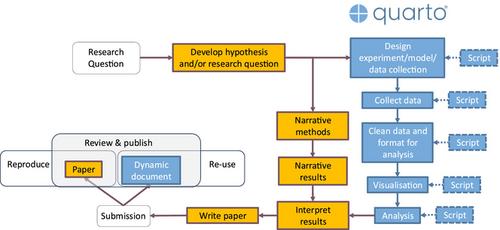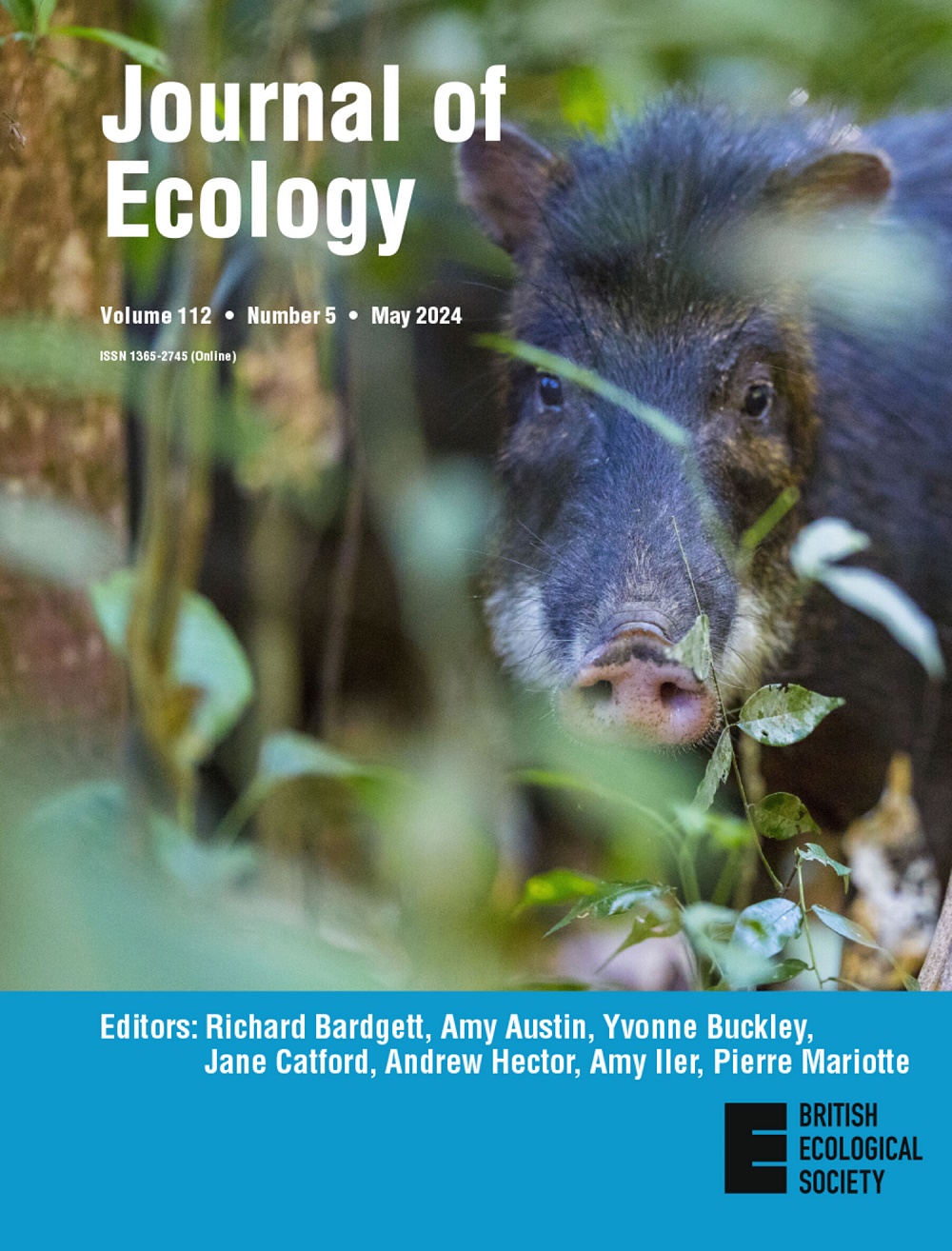Using dynamic documents to mend cracks in the reproducible research pipeline
IF 5.6
1区 环境科学与生态学
Q1 ECOLOGY
引用次数: 0
Abstract





使用动态文档来修补可重复研究管道中的裂缝
科学研究应该是可重复的,而可靠的结果,根据定义,是可重复的。不幸的是,在过去的几十年里,几个学科的研究人员发现,我们过去和现在的大量研究既不可重复也不可复制,这令人担忧,促使一些人宣布“可重复性危机”(Ioannidis, 2005)。严格地说,可重复性是指在给定原始数据、代码和文档的情况下重现研究结果的能力——简单地说,研究是以透明的方式进行的。另一方面,可复制性是重复研究的能力-使用相同的方法收集新数据-并且(通常)得出相同的结论(Essawy等人,2020)。然而,这些定义并没有得到严格的应用,这两个术语有时被用来涵盖两个概念的各个方面。可重复性危机的原因是复杂的,发生在研究过程的许多点,从研究设计,通过数据收集和清理,探索性分析和推理方法的选择(Alston &;瑞克,2021;韭菜,彭,2015)。生态和环境建模当然也不能幸免于这场危机(阿尔斯通&;瑞克,2021;Archmiller et al., 2020;Essawy et al., 2020)。最近,Gould等人(2023)表明,即使给定相同的生态数据集,由于分析方法的差异,科学家也会得出不同的结论。这强调了数据分析决策对其他试图重现这项工作的研究人员来说是清晰和透明的必要性。除了确切地知道研究人员为分析做了什么准备之外,还要知道统计分析本身是否适合和正确得出的结论。在研究过程中,从构思到发表甚至更远,都存在许多可重复性的缺陷。解决如此多样化的问题并非易事。然而,为记录研究过程而建立健全的程序将有所帮助,学术期刊在这方面可以发挥关键作用。可重复性是保证研究质量的关键步骤。它可以在作品提交出版之前、同行评审期间和出版后进行评估。
本文章由计算机程序翻译,如有差异,请以英文原文为准。
求助全文
约1分钟内获得全文
求助全文
来源期刊

Journal of Ecology
环境科学-生态学
CiteScore
10.90
自引率
5.50%
发文量
207
审稿时长
3.0 months
期刊介绍:
Journal of Ecology publishes original research papers on all aspects of the ecology of plants (including algae), in both aquatic and terrestrial ecosystems. We do not publish papers concerned solely with cultivated plants and agricultural ecosystems. Studies of plant communities, populations or individual species are accepted, as well as studies of the interactions between plants and animals, fungi or bacteria, providing they focus on the ecology of the plants.
We aim to bring important work using any ecological approach (including molecular techniques) to a wide international audience and therefore only publish papers with strong and ecological messages that advance our understanding of ecological principles.
 求助内容:
求助内容: 应助结果提醒方式:
应助结果提醒方式:


